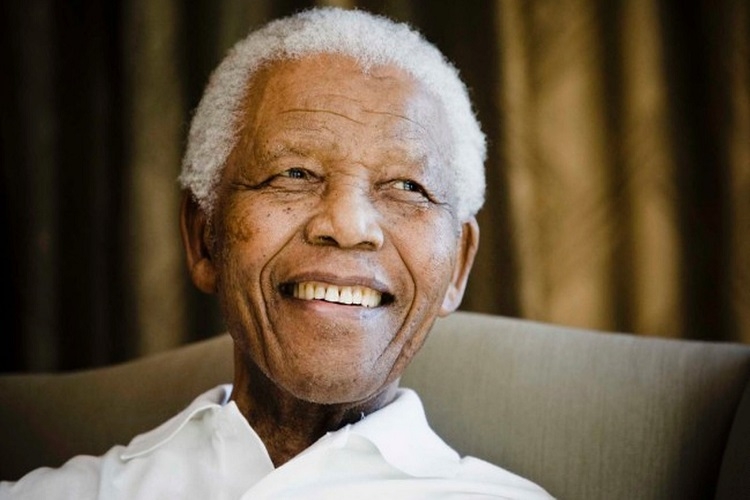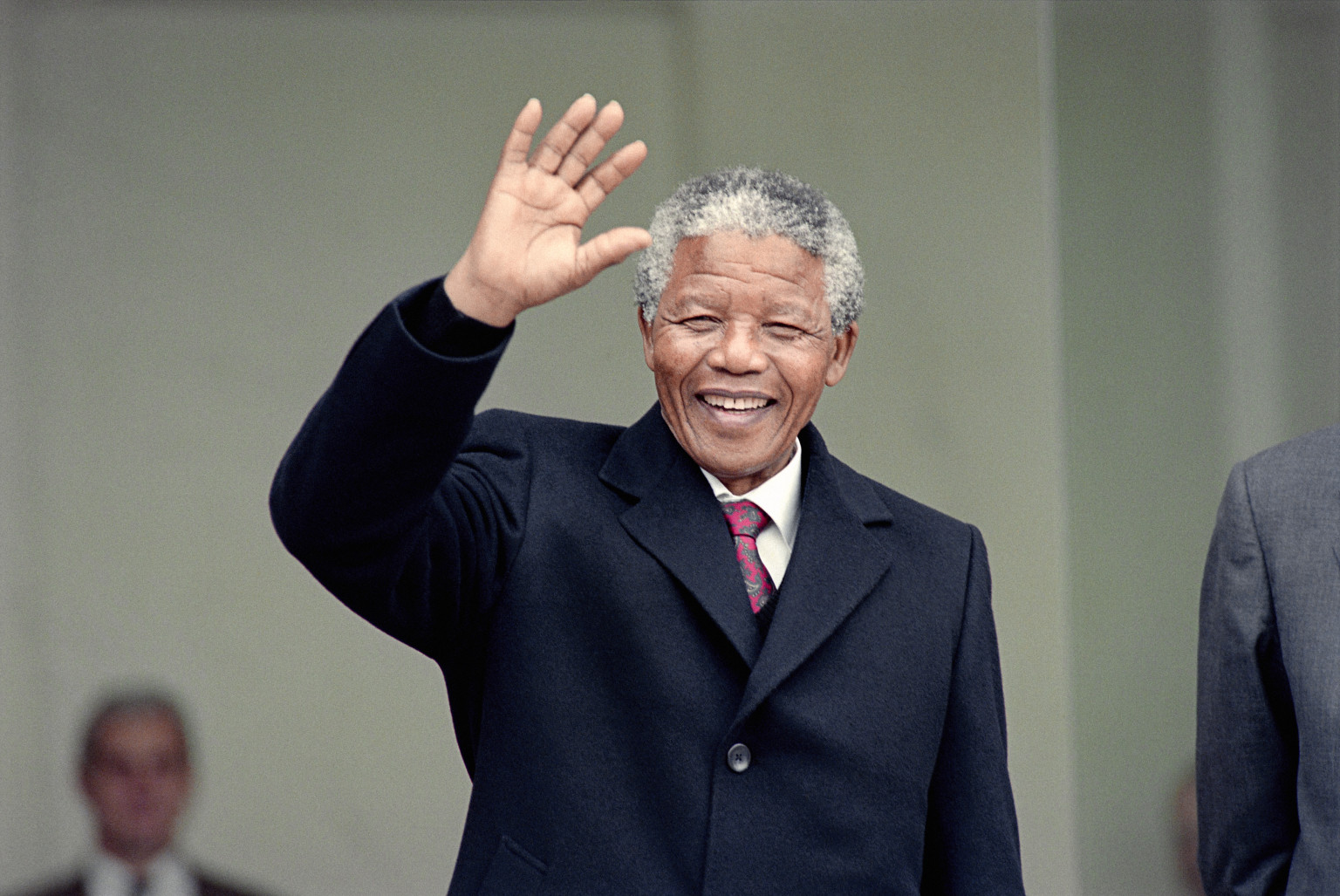Nelson Mandela International Day
Published: 09:39 AM, 18 July 2017 Last Update: 11:28 AM, 18 July 2017
Nelson Mandela: A man inspiring to change for a better world to live

July 18, 1918 is the date of birth of Nelson Rolihlahla Mandela, who was born in a country that viewed him as a second-class citizen, died as one of the most respected statesmen in the world. Throughout his 95 years old life he proved “It is in your hands to make of the world a better place,”

Nelson Mandela, son of one of South Africa's leading dignitaries, Chief Henry Mandela was born in the Transkei, a region of rolling green hills near the southern tip of the African continent. A towering figure in 20th century history, Nobel Laureate Nelson Mandela showed how wisdom and patience can triumph over bigotry and brute force. He proclaimed the title “Father of the Nation” on his journey of struggle for equality and a better world.
In his autobiography, Long Walk to Freedom, he recalled his childhood as a simple, joyful time. He herded sheep and cows near his mother's huts and played barefoot with other boys. He was educated by British missionaries, got a law degree and eventually opened the first black law firm in Johannesburg.
In the 1940s, Mandela became active with the Youth League of the African National Congress.
Tapping into the culture of black resistance that was sweeping Johannesburg, Mandela helped organize strikes and demonstrations against the country's system of racial segregation.

Later, Mandela and other ANC leaders decided that freedom songs and civil disobedience would never topple the apartheid government, so they set up Umkhonto we Sizwe, the armed wing of the ANC. As a result of Umkhonto we Sizwe's guerrilla tactics, Mandela and seven other ANC leaders went on trial for sabotage in 1963.
Against the advice of his lawyers, Mandela gave a four-hour closing statement. He used the speech in what's known as the "Rivonia trial" to attack the apartheid system. Despite facing the death penalty, he defiantly told the court that his actions had been in pursuit of the ideal of a free, democratic society with equal opportunity for people of all races.
"It is an idea for which I hope to live for and to see realized but my Lord, if it needs be, it is an idea for which I am prepared to die," Mandela said at the time.
Mandela and his codefendants escaped the gallows but were sentenced to life in prison.

He would spend the next 27 years behind bars, much of that time in the maximum security prison on Robben Island. In prison he became a symbol of the anti-apartheid movement and the focal point of international campaigns to do away with racial segregation in South Africa.
Once released from prison, Nelson continued his campaign to end apartheid. His hard work and life long effort paid off when all races were allowed to vote in the 1994 election. Nelson Mandela won the election and became president of South Africa.
.jpg)
There were several times during the process where violence threatened to break out. Nelson was a strong force in keeping the calm and preventing a major civil war. Following his retirement as president in 1999, Mandela went on to become an advocate for a variety of social and human-rights organizations.

In his autobiography, Mandela notes that his struggle against apartheid took a toll on his personal life. Toward the end of the book Mandela says: "To be the father of a nation is a great honor, but to be the father of a family is a greater joy. But it is a joy I had far too little of."

He had four children with his first wife, Evelyn Mase. Three of them died before him.
His marriage to Winnie Madikizela Mandela survived his incarceration but disintegrated soon after he was released. He watched his daughters from this second marriage grow up through the glass of prison visitor's rooms.
But in his waning years, Mandela's home life finally improved. Rumors that he was in love started to surface in 1996. Graca Machel, the widow of Mozambican President Samora Machel, was seen frequently in Mandela's presence. For his 80th birthday, the two got married in a tiny, private ceremony.
Friends say that Machel brought Mandela the joy that he felt he'd missed as he struggled for decades to bring freedom to South Africa.
He passed away on 5 December 2013 of a lung infection at his home in Johannesburg at the age of 95.
For 67 years Nelson Mandela devoted his life to the service of humanity — as a human rights lawyer, a prisoner of conscience, an international peacemaker and the first democratically elected president of a free South Africa.

In November 2009, the UN General Assembly declared 18 July "Nelson Mandela International Day" in recognition of the former South African President’s contribution to the culture of peace and freedom. General Assembly resolution A/RES/64/13 recognizes Nelson Mandela’s values and his dedication to the service of humanity, in the fields of conflict resolution, race relations, the promotion and protection of human rights, reconciliation, gender equality and the rights of children and other vulnerable groups, as well as the fight against poverty and the promotion of social justice. It acknowledges his contribution to the struggle for democracy internationally and the promotion of a culture of peace throughout the world.
Every year on 18 July, the day Nelson Mandela was born, the UN asks individuals around the world to mark Nelson Mandela International Day by making a difference in their communities. Everyone has the ability and the responsibility to change the world for the better, and Mandela Day is an occasion for everyone to take action and inspire change. People are asked to devote 67 minutes to helping others. The 67 minutes represents the 67 years Mandela spent serving his country.
UN staffs around the world have made a difference through a variety of activities in the past – from rebuilding homes destroyed by hurricane Sandy, to offering school supplies to children, preparing meals for the elderly, helping out in orphanages, cleaning up parks and delivering computer literacy workshops.
In 2016, UN staff in New York helped women in need receive professional clothing donations, career counselling, child care, and nutritious meals, in volunteer activities organized by the UN Department of Public Information and supported by UN Women.
In 2015, UN staff volunteers in New York, partnered with GreenThumb, East New York Farms, and the UN Food Garden, to plant seedlings, pull weeds and water plant beds in community gardens across the city.
In Geneva, the Permanent Mission of South Africa and Serve the City Geneva have mobilized volunteers to help the poor and marginalized in the city.
In 2014, in New York, UN staff, joined by the Secretary-General Ban Ki-moon, and in partnership with MillionTreesNYC, volunteered their time and got their hands dirty by pulling weeds, putting down mulch and watering tree beds to help take care of newly planted trees on the streets of Midtown Manhattan and East Harlem.
Nelson Mandela once said, “What counts in life is not the mere fact that we have lived. It is what difference we have made to the lives of others that will determine the significance of the life we lead.”
This line of his is the inspiration of celebrating the day this way. The man who was brave enough to struggle all his life to make a change, even after his death inspiring the world ‘to make the change needed to build a better place to live’ by International Nelson Mandela day.




